Opinions
Remember user-generated content in marketing your hotel
10 MAY 2017 8:28 AM
Social media and online review sites are more than just trending; they are determining how and where guests are booking their hotel stays.
By Scott Antel and Stephen Greyling
A classic 1960s and onwards advertising strategy was “if you can’t improve the product, put it to music”—an adage which recognized the emotive and recollective attributes of music and rhyming word “jingles.” Recall how the memorable Sheraton “800-325-3535” tune of the ’70s steered potential guests to the latest direct booking medium of the day: the “toll-free” 800 number.
Times have changed. Fast forward to today, and traditional “Mad Men” methods of advertising have given way to “user-generated content” (or “UGC”) —particularly social media mediums— Facebook, Instagram, Twitter and so on—and online review websites, such as TripAdvisor.
Not only does UGC have a wider reach than traditional advertising methods—as of Q4 2016, Facebook reportedly had 1.86 billion active monthly users—it is also far more trusted by the current generation of millennials, defined as those born between 1977 and 1995, who are forecast to have record-breaking purchasing power—$1.4 trillion by 2020.
A recent survey by IPSOS showed that, unlike previous generations who consumed traditional, professionally-created advertising content, millennials spend 30% of their media time on UGC. Not only do they spend more time on it, but millennials also trust UGC far more than they trust traditional advertising. The survey showed millennials are more likely to trust conversations with friends (74%), peer reviews (68%) and social networking (50%) than print newspaper (44%), radio (37%) and television (34%).
Another recent survey by Phocuswright, relating specifically to the influence of TripAdvisor, found that 75% of respondents now use the review site before booking a hotel. 53% of those surveyed said they would not book a hotel that had no reviews and—although bad reviews can
put people off—hotels can reduce the impact of a bad review by responding quickly and appropriately. A total of 62% of respondents agreed that seeing considerate and action focused hotel management responses to reviews made them more likely to book, while 87% agreed that an appropriate management response to a bad review would “improve their impression of the hotel.” That said, simply slagging off even the most ill-intended guest review as “fake news” or the “guest from hell” is not constructive and will not instil future guest loyalty.
In light of this evidence and increasing trend in how hotel guests evaluate and choose hotels, one would surely expect operators’ obligations in hotel management contracts to have adapted to reflect the growing dominance of UGC in attracting guests to their hotels. So how many provisions relating to UGC does your average hotel management contract contain? The answer, surprisingly, is none.
Operators will no doubt argue that they are already taking steps to utilize UGC, and might point to their “brand standards” and “centralized marketing services” as addressing this. However, given the ever-increasing importance of UGC as a marketing medium, isn’t it time that operators include express obligations to owners to ensure that their hotels are properly promoted using UGC?
For instance, operators should be obliged to:
Maintain certain minimum rating levels on review websites; strive to win awards and accolades on review websites; and respond promptly and appropriately to both good and bad reviews.
And where they fail to do so, owners should have the option to terminate their hotel management contracts in much the same way as they generally can for poor financial performance. Indeed, this should be part of a broadened and “modernized” performance test model, which also includes a minimum percentage of bookings to be generated via the brand’s own website.
Operators will almost certainly be reluctant to accept such obligations, and might argue that they could still receive negative ratings on review websites despite their best efforts—for example, as a result of “internet trolling” or false reviews being posted by competitors. However, this could be addressed through the use of software, and in the drafting of the obligations in the hotel management contract. It shouldn’t prevent the parties from at least attempting to address this relevant and trending aspect of the modern hotel industry.
With the proliferation and effectiveness of UGC advertising—effectively collective customer “self- help” marketing and advertising—presumably the cost of funding the central marketing activities of hotel operators has decreased, though the central service charges levied by the operators has not and in many cases has increased. Operators will invariably say they cannot allocate or account for such costs, which is indeed a concern when these same characters are accounting for your hotel. But an explanation is due to hotel owners.
Unfortunately, as with many issues arising from the current state of hotel management contracts in the industry, the status quo is unlikely to change until owners take a stronger stance with operators when negotiating their management arrangements. It also would help the cause if the consultants and lawyers assisting owners in their hotel management contract negotiations got with the times to address the ever-increasing impact of UGC in how guests choose where to stay.
Scott Antel is a senior partner in Berwin Leighton Paisners hotels group and has more than 25 years working in emerging markets around the world. Stephen Greyling is a senior associate specializing in hotels and real estate.
The opinions expressed in this column do not necessarily reflect the opinions of Hotel News Now or its parent company, STR and its affiliated companies. Bloggers published on this site are given the freedom to express views that may be controversial, but our goal is to provoke thought and constructive discussion within our reader community. Please feel free to comment or contact an editor with any questions or concerns.

